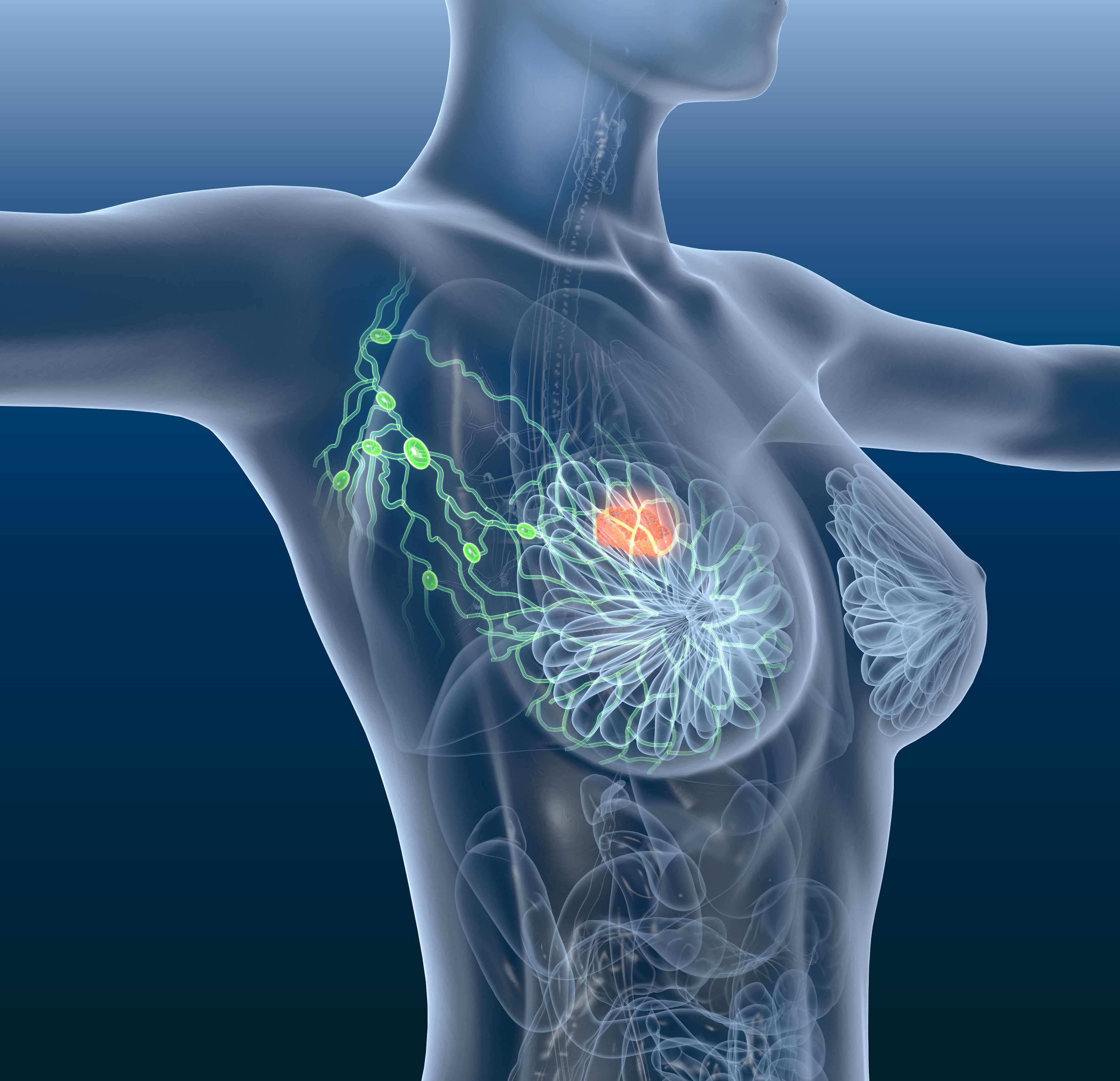Ribociclib Combo Yields iDFS Improvement in HR+/HER2– Breast Cancer
Combining ribociclib with nonsteroidal aromatase inhibitor treatment also produces relapse-free survival and distant disease-free survival benefits in patients with HR-positive, HER2-negative early-stage breast cancer.
“At the protocol specified final iDFs analysis of the NATALEE trial, the addition of ribociclib to standard adjuvant endocrine therapy continues to show a highly significant iDFs benefit compared to endocrine therapy alone, with 78% of patients no longer receiving ribociclib,” according to Gabriel N. Hortobagyi, MD, FACP.

Ribociclib (Kisqali) plus adjuvant nonsteroidal aromatase inhibitor therapy improved invasive disease-free survival (iDFS) compared with nonsteroidal aromatase inhibitor therapy alone in those with hormone receptor (HR)–positive HER2-negative early-stage breast cancer, according to 3-year follow-up data presented at the 2023 San Antonio Breast Cancer Symposium (SABCS).
“Most breast cancers are diagnosed in stages I-III, and while many patients are cured with the current standard of care that includes surgery, radiotherapy, chemotherapy, and endocrine therapy, a significant segment of this patient population will face disease recurrence,” study author, Gabriel N. Hortobagyi, MD, FACP, department of Breast Medical Oncology at The University of Texas MD Anderson Cancer Center said while presenting the findings.
Hortobagyi explained that prior research demonstrated promise for ribociclib in certain breast cancer populations.
“Earlier work demonstrated that the addition of ribociclib to endocrine therapy led to significant improvement in progression-free and overall survival for patients with HR-positive or HER2-negative advanced breast cancer in first and second line, while maintaining and improving quality of life. Median overall survival with this combination now exceeds five years.”
Findings of NATALEE showed that at the July 2023 data cutoff, 1091 of the 2549 (42.8%) of the patients in the ribociclib-aromatase inhibitor arm completed 3 years of treatment.
“I'd like to emphasize several special features of this adjuvant trial. It included patients with stage IIA and IIB, including those without nodal involvement. We use the lower dose of ribociclib than those used in the MONALEESA trials — 400 milligrams per meter per day — to improve tolerability in treatment adherence and extended the duration of treatment to three years to prolong cell cycle arrest, induce and induce irreversible senescence,” Hortobagyi noted.
At a median follow-up of 33.3 months (an additional 5.6 months for the prior interim analysis), a total of 509 iDFS events, which were defined by Standardized Definitions for Efficacy End Points (version 1.0), occurred: 226 of the 2549 (8.9%) patients in the ribociclib-containing arm, and in 283 of the 2552 (11.1%) in the aromatase inhibitor-only arm (p=.0006). Three-year iDFS rates were 90.7% (95% CI, 89.3%-91.8%) in the ribociclib arm, compared to 87.6% (95% CI, 86.1%-88.9%) in the aromatase inhibitor-only arm.
The researchers noted that iDFS benefit was observed across all patient subgroups including those with node-negative, stage II or stage III disease. For patients with node-negative disease, the 3-year iDFS rate was 93.2% vs 90.6% (HR, 0.723; 95% CI, 0.412-1.268) in the ribociclib and aromatase inhibitor-only groups, respectively. Three-year iDFS rates in patients with stage II disease were 94.2% vs 92.6% (HR, 0.700; 95% CI, 0.496-0.986), and 88.1% vs 83.8% (HR, 0.755; 95% CI, 0.616-0.926) in patients with stage III disease.
Findings also showed that distant disease-free survival (DDFS) also favored the ribociclib/aromatase inhibitor arm, with 3-year DDFS rates of 92.9% and 90.2% in the ribociclib and aromatase inhibitor-only arms, respectively (HR, 0.749; 95% CI, 0.623-0.900). Overall survival showed a slight trend toward the ribociclib arm, though that data is not yet mature.
No new safety signals were observed since the prior interim analysis. A total of 19.5% of patients discontinued treatment with ribociclib due to adverse events — a less than 1% incrase from the prior interim analysis.
The most common adverse events (AEs) in the ribociclib-containg arm were: neutropenia, with 62.5% of patients in the experimental group experiencing any-grade neutropenia, and 44.3% experiencing the toxicity at grade 3 or higher; liver-related AEs (26.4% and 8.6%); QT interval prolongation (5.3% and 1%); and interstitial lung disease/pneumonitis (1.5% and 0%).
At the data cutoff, 78.3% of patients were no longer on ribociclib treatment. The most common AE that led to treatment discontinuation was liver toxicity.
“At the protocol specified final iDFs analysis of the NATALEE trial, the addition of ribociclib to standard adjuvant endocrine therapy continues to show a highly significant iDFs benefit compared to endocrine therapy alone, with 78% of patients no longer receiving ribociclib,” Hortobagyi concluded. “Such benefit is consistent throughout the various prognostic subgroups analyzed, and similar benefits were observed in relapse free survival and distant disease free survival.”
Reference
Hortobagyi G, Stroyakovsky D, Yardley D, et. al. (GS03-03) Ribociclib (RIB) + nonsteroidal aromatase inhibitor (NSAI) as adjuvant treatment in patients with HR+/HER2− early breast cancer: final invasive disease–free survival (iDFS) analysis from the NATALEE trial.Presented at: 2023 San Antonio Breast Cancer Symposium. December 5-9, 2023; Abstract GS03-03
Newsletter
Stay up to date on recent advances in the multidisciplinary approach to cancer.